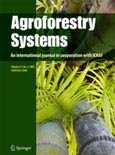While incentive-based approaches like Payments for Ecosystem Services abound in current theoretical debates and environmental governance, their social impact is often unclear. It is highly relevant to ask if costs and benefits of such interventions are allocated equitably, and if the distribution of payments is dependent on a policy's socio-political context. Literature speaks of distributive and contextual equity here, but evidence on how these two dimensions are interlinked is scarce. Thus, our study investigates Vietnam's Payments for Forest Environmental Services scheme and assesses its implementation's cost benefit-allocation at the local level. Pre-existing political, economic, and social conditions are examined for their impact on current payment distribution. The study takes a qualitative case study approach with semi-structured in-depth interviews with local, provincial, and national respondents focusing on the district of Nam Ðông. Findings reveal that various gains were distributed unevenly among individuals. While some community members benefitted from privileged positions in local hierarchies, others were excluded from participation and from tapping into funds. Such results hint to the functional importance of equity for incentive-based resource management. They demonstrate that environmental policies can reinforce existing asymmetries in power and wealth if they do not consider the socio-political context they operate in.
DOI:
https://doi.org/10.1016/j.ecolecon.2019.02.021
Skor altmetrik:
Jumlah Kutipan Dimensi:



















